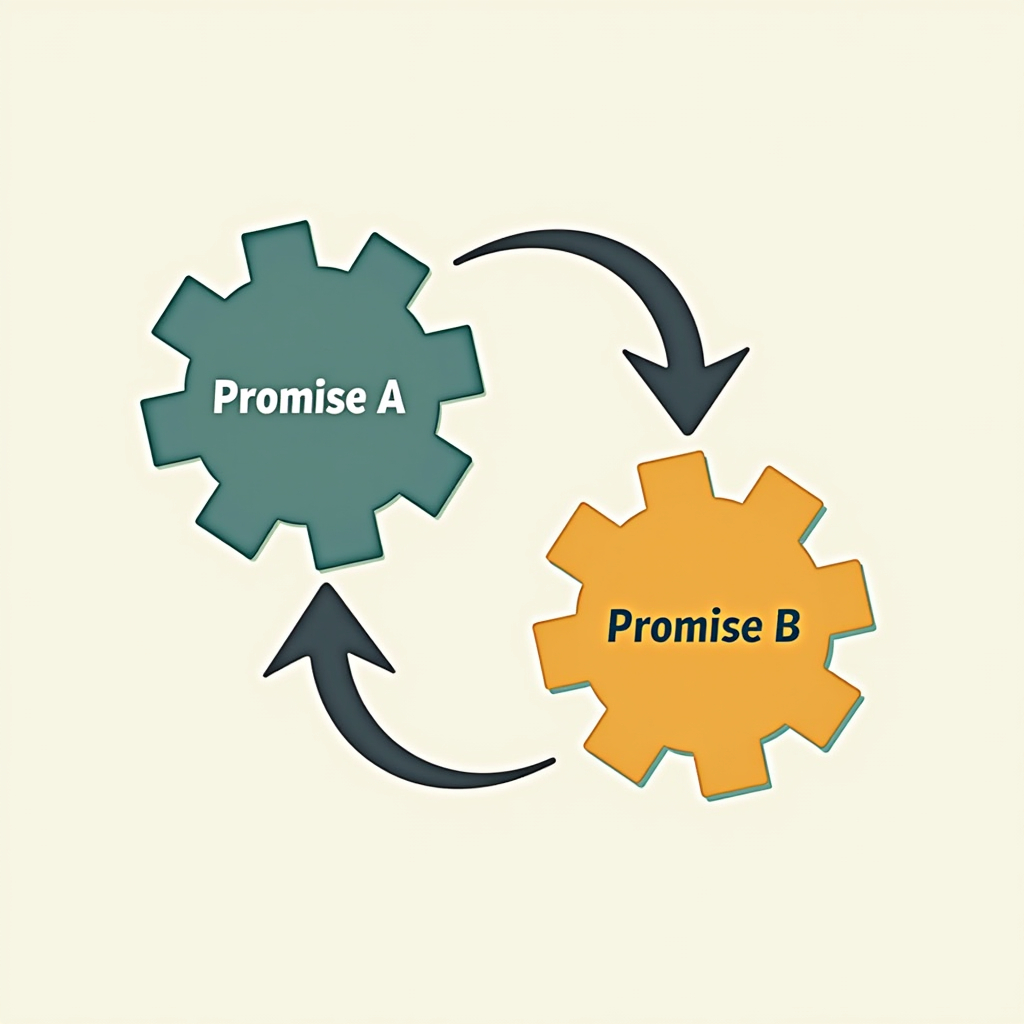This article is updated by Shafaq Gupta. The article deals with Section 2 of the Indian Contract Act,1872 in detail and defines the various definitions as applicable in the Act. The various sections related to them are also dealt with in brief to provide a complete understanding of a particular definition. Lastly, this article discusses relevant case laws and illustrations to each accompanying provision.
Table of Contents
Introduction
The law of contracts is one of the most important branches of mercantile law without which the economy of our country cannot function smoothly. It keeps our economy regularised by regulating our day-to-day dealings from sunrise to sunset. Nearly every transaction, every deal, involves a contract.
For example, booking a cab from an Uber app, issuing a book from the library, purchasing goods from the market, buying a newspaper subscription for a month, and getting it delivered to your home daily, are all contracts. All these contracts need to be made in accordance with the law of contracts.
The Indian Contract Act, 1872 (hereinafter referred to as “the Act or ICA”) was enacted by the legislature on 25th April 1872 and came into force on 1st September 1872. As we can see from the year 1872 itself, it is one of the oldest legislation of India which was enacted even before our country got independence in 1947. It was framed on the basis of a report submitted by the third British law commission in 1861 under the leadership of Sir John Romily and after that many changes were made to finalise the draft of the Act.
Contract law may be defined as a set of rules and principles that govern the transactions among parties, setting the rights and obligations of these parties. The Act is the statute regulating and controlling contract laws in India. It deals with the various concepts related to contracts such as offer, acceptance, conditions of a valid contract, revocation, consideration, etc. In this article, we will cover the various definitions provided in the law of contracts.
Clause-wise analysis of Section 2
The notion of contract underpins our entire economy, and therefore, every aspect of a contract must be analysed and understood correctly. A contract cannot be seen in the isolation of Section 2, for it would allow loose interpretation, which may lead to the essentials of a contract being overlooked.
Section 2 of the Act is the interpretation clause which provides the general definition of words and expressions used in the Act. Unless the context indicates otherwise, these definitions are usually adhered to. The clause-wise analysis of each subsection is as follows:
Section 2(a): Offer
The term ‘offer’ is also used interchangeably with the word ‘proposal’, which has been defined under Section 2(a) of the Act. It defines an offer as the willingness of a person to perform an act or to abstain from performing an act and this is done to obtain the consent of another person to that particular act or abstinence. It is the first step towards the formation of an agreement. For example, A asks B the question, “Will you purchase my car for Rs 2 lakhs?” Through this question, A is making an offer to B.
Communication of offer
For an offer to be valid in the eyes of the law, it must be communicated to the offeree (i.e., the party on the receiving end of the offer). It must be clear and precise to receive the consent of the other party to form an agreement. Section 3 of ICA states that there must be an intention to communicate the offer or any such act or omission must be done which tends to communicate the offer. Section 4 of the ICA further states that an offer is complete only when it comes to the knowledge of another party to whom the offer was made.
For example, A proposes to sell his house to B via letter at a certain price. The communication of the offer is complete as soon as B receives the letter. Another example of it can be if A revoked his proposal by way of telegram against B. This revocation will be considered complete on the side of A when the telegram was dispatched but it will be considered as communicated to B only when he receives the telegram.

Intention to create legal relationship
Another important thing to be kept in mind regarding an offer is that an offer must be made with the intention of creating a legal relationship. Mere social invitations do not count as an offer under the contract law. An agreement may have all the essentials required for enforceability, but it will not become a contract without this intention. The lack of intention is why domestic, social and religious agreements have been kept out of the domain of the courts when it comes to enforceability.
For example, A offers B to watch a movie together on Sunday and B agrees to it. Even though A made an offer to B here, it is merely a social invitation and A cannot be held liable if he postpones or cancels watching movies with B.
A landmark Australian case law in this regard is Balfour vs. Balfour (1919). In this case, the defendant was a government employee in Ceylon and he went to England with his wife for a holiday trip. His wife got unwell and due to health concerns, she was not able to return back to Ceylon with him. The defendant promised her to pay a sum of £ 30 per month as maintenance for the period she had to live apart.
Eventually, he failed to pay that amount and was sued by his wife. The case was decided in favour of the defendant (husband) by Lord Atkin as there was no intention to create a legal relationship. It was just a normal agreement made between a husband and a wife out of their domestic marital relationship.
Types of offer
- General or specific offer
An offer can either be a general offer or a specific offer depending on the circumstances. It is a specific offer when it is conveyed to a particular person and not to anyone else. But a general offer is an offer made to the public at large. For example, A advertises to sell his 2 BHK apartment in South Delhi for an amount of Rs 21 lakhs. This is a general offer which may be accepted by any individual. However, if A had specifically offered one of his relatives his apartment, it would have been a specific offer.
- Cross offer
When two offers having the same terms and conditions crossed each other in the post, they are called cross offers. Both are offers, none of them would be considered as acceptance to others though terms and conditions are same in both. For example- A makes an offer to sell his house for 7 lakhs to B and B in ignorance of that makes an offer to buy the same house for 7 Lakhs, they are said to make a cross offer, and there is no acceptance in this case, hence it cannot be a mutual acceptance.
- Express or implied offer
An offer would be an express offer when it is made in words by way of mouth or by writing. An offer made otherwise than in words is said to be an implied offer. For example- Bus or train services or putting coins in an automatic machine or a passenger boarding a bus.
- Counter offer
When the offeree offers a qualified acceptance of the offer subject to modifications and variations in terms of the original offer, he is said to have made a counter offer. A counter offer is a rejection of the original offer. For example – A offers B a car for 10 Lakhs, B agrees to buy for 8 Lakhs, this amounts to a counter offer and it would mean a rejection of the original offer. Later on, if B agrees to buy for 10 Lakhs, A may refuse. Counter offer is not a valid offer as the acceptance of an offer must be absolute and unconditional.
- Invitation to offer
Sometimes a person may not offer to sell his goodsor services, but makes some statement or gives some information with a view to inviting others to make an offer on that basis. These statements are considered as an invitation to offer. For example- catalogue of books, auction sale, notice of tenders of any institution or company etc.
In the case of Lalman Shukla vs. Gauri Dutt (1913), it was held by the Allahabad High Court that an offer can be accepted only if it has been communicated to the offeree. The brief facts of the case are that the plaintiff found the missing child of the defendant and he handed over the child to the defendant without knowing about the reward.

The defendant had announced a reward of Rs. 501 in lieu of whosoever finds his missing child would get it. But the plaintiff was unaware of it and he continued his services as a servant under the defendant for a further six months.
Later when he came to know about that reward, he filed a suit in the court to recover it but the court ruled in the favour of the defendant as the offer was not communicated to the plaintiff. Therefore, he could not benefit from it.
Section 2(b): Promise
Section 2(b) of the Act defines promise. A proposal or an offer is considered to be accepted by the party to whom it was made when he signifies his assent to it. A proposal after getting accepted, becomes a promise. After the acceptance is made by the offeree, both the parties to a contract become legally liable to each other.
Just like an offer, the acceptance may also be expressed or implied. It is not necessary for the offeree to accept an offer. He may deny it according to his own will. For example, A offers to B to purchase his house and in return, B accepts the offer at an amount of Rs 1.5 lakhs. This is a promise.
Essentials of a promise
In the words of Anson, “acceptance is to offer what a lighted match is to a train of gunpowder. It produces something which cannot be recalled or undone”. There are a few essentials that need to be followed for a valid acceptance, some of which are discussed as follows. These are covered under Section 7 of the Act.
Needs to be communicated
An acceptance must be communicated by the promisee to the promisor. Only then it would be considered a valid acceptance. It may be communicated orally, in writing, or by conduct within a reasonable period of time. It may be communicated by the promisee himself or through his authorised agent. If it is not communicated, the promisor is not bound by the promisor.
Absolute and unqualified
Acceptance should be absolute and unqualified. The proposal for an agreement must be accepted as it is without adding or modifying any conditions attached to it. It must be unqualified as otherwise it would be counted as a counteroffer if the promisee wishes to add any other terms to it. The proposal needs to be accepted as a whole. It is not possible to accept one part of it and leave the other.
Made in a reasonable manner
Acceptance should be made in some usual and reasonable manner unless the proposal prescribes the manner of acceptance. An acceptance of an offer may be made orally or in writing. The usual and reasonable manner of acceptance depends from situation to situation.
Suppose, an offer is made by A, who is a villager, by post. So, B cannot text A regarding acceptance of the offer if he knows that there are weak or no telephonic signals in that village. He needs to send his acceptance by post only.
If any specific mode of acceptance has been given (via a letter or telephone call, for example), communication must happen through the prescribed mode. If the acceptance is not communicated in the prescribed mode, the promisor may vitiate the contract.
For example, A wants to sell his iPhone to B and states that the acceptance of the offer is to be made via telegram text. But, B communicated his acceptance over a call. A may either accept it as it is or tell him to do so in the prescribed manner within a reasonable time. Otherwise, A may vitiate it.
Offer should still subsist
The offer must subsist till the time an acceptance is communicated by the promisee. It is because the promisor may withdraw his offer at any time before an acceptance is communicated to him.
The issue of communication of acceptance was taken up in the case of Felthouse vs. Bindley (1862). In this case, Felthouse wrote a letter to his nephew offering to buy his horse for 30-15 sh. He also mentioned in the written letter that if his nephew didn’t say anything in reply, he would consider the horse as his own horse.
His nephew did not reply to Felthouse but told his auctioneer, Bindley, that he wanted that horse to be given to his uncle and instructed him not to sell his horse to anybody else. But, by mistake, Bindley sold the horse to someone other than his uncle. Now, Felthouse sued Bindley for the tort of conversion and he contended that he was the owner of the horse.

It was held that as acceptance of the offer was not communicated to the offeror, no contract arose between them. Hence, Bindley is not liable towards Felthouse. It was also held that mere silence cannot amount to acceptance. The offeree chose not to reply and the offer lapsed with the passage of time.
Section 2(c): Promisor and promisee
Section 2(c) of the Act defines the two parties to a contract. The person who makes a proposal or gives an offer to the other party is known as the promisor and the party to whom the proposal or offer is made is known as the promisee. For example, A makes an offer to B via telegram. In this case, A will be the promisor and B will be the promisee.
Section 2(d): Consideration
Section 2(d) of the Act defines consideration for a promise as any act done or omission made by the promisee or any other person, on the wish of the promisor, that act or omission is known as consideration. It may be a present, past, or future consideration. For example, A entered into a contract with B to deliver 50 cement bags at the end of the month. In return, B promised to pay Rs 5000 on delivery. Here, Rs 5000 is the consideration for the contract.
Essentials of consideration
Consideration is something in exchange for something, i.e., mutual benefits. It must be something that has value in the eyes of the law. Essentials for a valid consideration are discussed as follows:
Must be at the desire of the promisor
The consideration must be made on request or demand of the promisor himself and not any other person. Even if a consideration is made by the promisee voluntarily, it would not be valid as it was not made at the desire of the promisor. For example, A displays a public notice that whoever finds his missing child, would be paid Rs 1000 as a reward. This is a valid consideration.
Given by the promisee or any other person
Consideration can be given by the promisee himself or any other person as per Section 2(d) of the Act. It is not necessary that only parties to a contract may give consideration. The third party who gives consideration may have some interest in the contract, but cannot sue in case of its breach due to the privity of the contract.
For example, A entered into a contract with B, where A was the promisor and B was the promisee. However, it was C who paid the consideration as per the desire of A. It is a valid consideration, though C cannot sue in case of breach of contract.
Can be made in the past, present, or future
Past consideration refers to the consideration made for an act that has already been performed before a contract was made for it. For example, A provided his services in the law chamber of B for a month and at the end of it, B paid Rs 5000 to A.
Present consideration refers to the consideration which is given simultaneously with the act performed. For example, A purchases a wall clock from a local shop and pays Rs 2000 for it to the shopkeeper.
Future consideration refers to the consideration that needs to be given in the future when the specified act will be performed by the promisee. For example, A promises to sell his crop to B when it is harvested and at that time, B will pay the required amount for it.
Act, abstinence, or promise by the promisee
The promisee must do an act or restrain from doing something or make a promise which forms a part of valid consideration. Consideration is something for something. So, the promisee needs to do something in return for the acceptance of an offer made by the promisor.
Consideration need not be adequate
There is a general principle for consideration which states that “the adequacy of the consideration is for the parties to consider at the time of making an agreement, not for the court when it is sought to be enforced.” For example, A sold his horse to B for a mere Rs 10 while the worth of the horse was about Rs 1000. Here, the consent of both the parties was free and even a sum of Rs 10 has some value in the eyes of law. Though not an adequate consideration, it is valid as per the law.
However, even if not adequate, there should be some obligation on the end of both parties along with a consideration. For example, A promises to pay B a sum of Rs 1000 without the presence or promise of any consideration in return. This is a void contract because at least some consideration must be there.

To understand the essentials of a valid consideration, let us have a look at case law. In the case of Durga Prasad vs. Baldeo (1880), the plaintiff constructed certain shops in a market at the instance of the collector. Subsequently, one of the shops was occupied by the defendant. As the plaintiff spent money on the construction, the defendant promised to give some commission on the articles sold.
He failed to give a commission to the plaintiff and was sued for the same. The Allahabad High Court held that the building was made at the desire of the collector and not at the desire of the plaintiff. Since consideration was not moved at the desire of the plaintiff, he was not entitled to the commission.
In another case of Abdul Aziz vs. Masum Ali (1914), the Allahabad High Court held that the quid pro quo (something for something) aspect of the agreement was absent, hence, there was no valid consideration, and the agreement could not be enforced.
In the case of Rajlukhy Dabee vs. Bhoothnath Mookerjee (1900), the defendant promised to pay a certain sum of money as maintenance to his wife. They made a separate agreement regarding this subject which listed the conditions between them in detail along with the terms of agreement.
Later, the defendant contended that the agreement was made out of love and affection and there was no intention to create a legal relationship. However, the Calcutta High Court opined that there was no love and affection between the parties and a certain written agreement was made for the payment of maintenance amount. Hence, it is a valid consideration with a binding nature.
The other sections of the Act related to consideration also need to be studied in brief. Section 23 of ICA,1872 states that the consideration must be lawful. It means the object of the consideration must be lawful. It also states when a consideration will be considered unlawful:
- Forbidden by law; or
- Of such nature that defeats any provision of any law; or
- Fraudulent; or
- Involved or implied the injury to the person or property of another; or
- Regarded as immoral by the court or opposed to public policy.
As per Section 24 of the Act, in each of these cases, owing to unlawful consideration, the contract would be declared void. Even if a part of the single consideration for one or more objects is unlawful or if one or a part of one of the several considerations for a single object is unlawful, the contract will be void.
For example, A makes a contract with B to sell him 10g Ganja and other medicines which are prescribed by the doctor for Rs 10,000. This contract is void as the object is unlawful in parts. If we remove Ganja from it, it will be a valid contract.
Section 2(e): Agreement
The word ‘agreement’ has been defined by Section 2(e) of the ICA. It defines agreement as a promise or set of promises which form a consideration for each other. In simple terms, an agreement is an offer that has been accepted by the other party. So, at least two parties are needed for an agreement to be made.
There should be two parties to a contract as there must be one party who is giving an offer and the other party accepting it. For example, A makes an offer to B to sell his house located in South Delhi for a consideration amount of Rs 1,00,000 and B agrees to it. A and B can be said to be in agreement with each other.
Another thing to be noticed is that the parties must agree on the same thing in the agreement. There must be a meeting of minds i.e. consensus ad idem. For example, A makes an offer to B to sell his house located in South Delhi for a consideration amount of Rs 1,00,000 but B agrees to purchase A’s house located in North Delhi for which no offer was made. They are not agreeing to the same thing. Hence, there is no agreement between them.
In contrast, a contract is a specific type of agreement that is legally binding and enforceable in a court of law by its terms and elements. While every contract is an agreement, every agreement is not a contract. An agreement broadly comprises an offer and its acceptance, all of which must be bound together by communication within a reasonable period.

Section 2(f): Reciprocal promises
Section 2(f) of ICA defines reciprocal promises as those promises which form either the whole of consideration or a part of it. In other words, the performance of one party’s obligation is dependent upon the other party fulfilling its express or implied obligation.
For example, X desires to buy a house worth Rs 25 lakhs from Y. Y agrees to sell his house to X for the said amount. Here, X promises to pay the amount and Y promises to transfer the ownership of the house to X, making it a reciprocal promise on both ends.
These reciprocal promises form a valid consideration. Section 51 to Section 57 of the Act specifies the conditions that need to be fulfilled for the performance of reciprocal contracts. Following is a brief explanation of the provisions for a better understanding:
- Section 51: if any one of the parties to a contract is not willing to perform his part of the promise, the opposite party is also not bound to perform his part of the promise.
- Section 52: The promises must be performed in a sequence provided in the contract. If there is no definite sequence, the order of performance needs to be ascertained from the nature of promises.
- Section 53: if one of the parties to a contract prevents the other or makes it impossible for him to perform his obligation, the affected party has the option to either declare the contract void or ask for compensation.
- Section 54: when reciprocal promises are dependent on a condition that one act needs to be performed after the other, the party who has to act first, cannot ask the other to perform their promise without fulfilling their own promise.
- Section 55: in case of failure to perform the promise within the given time, the affected party may either declare the contract as void or claim compensation for the loss suffered.
- Section 56: reciprocal promises made to an impossible act are void.
- Section 57: the parties enter into a contract for lawful acts but later, they promise to do some unlawful acts. So, the earlier lawful acts will be valid and the later ones void.
Section 2(g): Void agreements
As per Section 2(g), all the agreements which are not enforceable by law are void agreements. The word void basically means that it has no legal effect. There are certain agreements that have expressly been declared void by the Indian Contract Act, 1872. This includes wagering agreements, agreements made in restraint of trade or marriage, agreements where both the parties were under mistake of a fact, etc.
For example, A and B made an agreement regarding the purchase of a herd of a pet dog. However, at the time of agreement, the dog had died due to a road accident. Since both parties were unaware of the fact, this agreement would become void.
Section 2(h): Contract
Section 2(h) defines a contract as an agreement that is enforceable by law. This implies that there are two primary ingredients of a contract: an agreement and enforceability. It establishes corresponding rights and obligations between the parties to the contract. If one of them fails to uphold their side of the obligations, the other party will have the right of action in court.
In other words, a contract is a formal document accepted by both the parties, the promisor and the promisee, and is the foundation stone of any business transaction. It is an agreement between two or more parties to do a certain act or abstain from doing it. Sir William Anson defined a contract as “a legally enforceable agreement between two persons wherein two or more persons get a legal right and some have to fulfil corresponding legal responsibilities.”
Therefore, a contract is an agreement between two or more competent parties, based on mutual promises, to do or to refrain from doing a particular thing that is neither illegal nor impossible. The agreement results in any obligation or duty that can be enforced in a court of law. The agreement resulted in legally enforceable contracts because the parties agreed mutually.
Essentials of a valid contract
Only a valid contract is enforceable by law, and a contract must fulfil certain conditions to be valid. If any of these conditions are not fulfilled, that contract is deemed to be void. The magnitude of this subsection is contemplated in 20 sections ranging from Section 10 to Section 30.
Section 10 of the ICA marks which agreements are contracts based on the fulfilment of certain conditions. If seen in isolation, Section 2(h) would not have any practical application in real life, which is why it becomes necessary to read Section 2(h) in context with other relevant sections of the ICA. The essentials of a valid contract given under Section 10 is discussed as follows:

Agreement between parties
There must be an agreement between the parties i.e. consensus ad idem. Both the parties must agree on the same point mutually.
Free consent
All the parties involved in the formation of a contract must freely consent to it. They must agree upon the same thing in the same sense. Free consent has been expounded in Section 14, and particular definitions of what does not comprise free consent have been given in the following sections. Consent will not be seen as free consent by a court of law if either of these five factors vitiates it:
- Coercion (Section 15)
Coercion means to threaten someone for the purpose of entering into a contract with him. It involves committing or performing an act that is prohibited by the law such as unlawful detention or threatening to hold any property that is detrimental to another person.
For example, A and B went shopping in the market. Suddenly, a group of four people came and pointed a gun towards them asking them to hand over all of their gold ornaments along with cash. Here, the consent of A and B is obtained by threatening them.
- Undue influence (Section 16)
A party to a contract can be considered to be under undue influence when there is a relationship of trust between them and one of the parties holds a dominant position over the other. The dominant person must try to get an unfair advantage from the other.
For example, Mr. Andrew, who was an old man, used to live with his niece named Sana. She used to take care of him for the whole day and help him perform his daily chores. One day, Sana demanded he sign the property papers since she was dedicating all her time to taking care of him. She even forced him to do so. So, in this case, the contract won’t be valid as it has been affected by undue influence.
- Fraud (Section 17)
In case of fraud, one of the parties to a contract has mala fide intentions to deceive the other party. He does so by either making a false statement which he knows to be false or by concealment of material facts. In case of fraud, the contract is voidable at the option of the party with whom the fraud has been committed. For example, in an auction, A sells his horse and knows it to be of unsound mind. But, he says to B, the buyer, that his horse is fit and fine. A will be held liable for fraud.
Another thing to be kept in mind is that mere silence about a thing does not amount to fraud unless and until the circumstances are such that silence is equivalent to speech. For example, A says to B that he wants to buy his house for Rs 10 lakhs and that “if you say nothing, I will assume that you are selling it to me.” B did not say anything and later sold it to someone else. This amounts to fraud because, in this situation, mere silence was equivalent to speech.
- Misrepresentation (Section 18)
Misrepresentation basically refers to misrepresenting a fact that is related to the contract and as a result, such information induces the other party to enter into a contract. Firstly, the person who makes such a statement believes it to be true, though that information is false and cannot guarantee it.
Secondly, it also includes statements made by a person who has no deceitful intentions but causes a breach of his duty and gains some advantage over the other by misleading him. Thirdly, misrepresentation can also be made innocently when the person making a statement causes the other party to make a mistake with regard to a material thing in a contract. The contract which is affected by misrepresentation is voidable at the option of the party who bears the loss by such misrepresentation.
For example, A sold his television to B by saying that it works perfectly fine. B had confidence in A and bought it for an adequate amount of consideration. After a month, it stopped working and B thought that he was being misled by A. Later, A explained that he had no intention to deceive him as he believed it to be in perfect working condition. So, here A has done misrepresentation of facts.

- Mistake (Section 20, Section 21, Section 22)
The word ‘mistake’ has not been defined under the Act. It basically means a mistake as to a material fact related to the contract and may be done by any party to a contract. It is not intentional and may be made due to confusion or negligence. Such contracts are void as parties have no consensus ad idem (agreeing on the same thing in the same sense).
But a mistake of law is not considered a mistake and such a contract is void because it follows the principle of ignorantia juris jon-excusat i.e. ignorance of law is no excuse. For example, goods were to be exported from France to Japan but the ship was cast away in between. Both the parties were not aware of it and no one did it intentionally. So, it was a mistake of fact.
In the case of Chikkam Seshamma vs. Chikkam Ammiraju (1917), it was held that the threat of suicide amounted to coercion. The contract was declared void as the consent given was not free. However, in the case of Askari Mirza vs. Bibi Jai Kishori (1912) 16 IC 344, it was held that the criminal prosecution is not a threat but the right of the aggrieved party in case of a wrong committed against them, and thus the contract between the parties was valid.
Competent to contract
As per Section 11 of the Act, an agreement is said to be a valid contract when parties entering into that agreement are competent to contract, which means that a person must be above the age of majority, of sound mind, and must not be disqualified by law. For instance, if a minor enters into a contract regarding the sale of land, it will be declared void ab initio — a principle established in the case of Mohori Bibee vs. Dharmodas Ghose (1903).
Lawful consideration
Consideration is something that has some value in the eyes of law and the contract must be made between the parties for a lawful consideration. It should not violate any law that is in force at present, must not be such an act or omission that has been prohibited by law, not be fraudulent, and not opposed to moral or public policy. The consideration for the contract need not be adequate but must be sufficient enough to have some value.
Suppose, A says to B that he can offer him a job in a government organisation, and for that, he needs to pay a sum of Rs 1 lakhs. This consideration is unlawful because it amounts to bribery and is opposed to public policy.
Lawful object of the agreement
It is necessary that the objective of a contract is legal. A court will not enforce a contract that is illegal or contrary to public policy. Illegal contracts are prohibited either by statute or by common law. For instance, if two people enter into a contract for active euthanasia, the contract would be declared void by a court of law.
In the case of Udhoo Dass vs Prem Prakash (1963), the Allahabad High Court observed that every consideration or object is lawful unless it is forbidden by law or is of such a nature that, if permitted, it would defeat the provisions of any law.
Not expressly declared to be void by any law
There are some agreements which are expressly declared to be void by the law. Such agreements are not enforceable and not considered binding on the parties. For instance, agreements in restraint of trade, agreements in restraint of marriage, wagering agreements, agreements to do an impossible act, agreements without any clear meaning, or agreements that are dependent on a condition to do an impossible act.
For example, both A and B are watching the World Cup final match between India and Pakistan. A bets that if India wins, B will have to pay Rs 5000 to A and vice versa. Such an agreement is void since it is a wagering agreement.
Difference between an agreement and a contract
For a better understanding of the difference between an agreement and a contract, let us have a look at the following table:
| Factors | Agreement | Contract |
| Definition | An agreement is defined as an offer that is accepted by the other party after a meeting of minds. | A contract is defined as an agreement enforceable by law. |
| On the basis of consideration. | It may be made without consideration. | It cannot be made without consideration. |
| Enforceability | It is not a legally binding document. | When an agreement fulfils all the essentials laid down under Section 10 of the Act, it becomes a contract and is a legally binding document. |
| Defined under what Section of the Act | An agreement is defined under Section 2(e) of the Act. | A contract is defined under Section 2(h) of the Act. |
| Mode of document | An agreement may be oral or written. | Written contracts are generally preferred as they can be proved easily in case of their breach. But there may be oral contracts known as ‘verbal or parol contracts.’ |
| Nature | Agreements can even be informal due to being used in social and domestic scenarios. | Contracts are more formal in nature. |
| Evidentiary value | Agreements are not enforceable and therefore, have no evidentiary value. | Contracts are much more efficient and tangible as evidence than agreements, especially if the agreement was made orally. |
Contract in the digital era

The Indian Contracts Act, 1872 is a fine piece of legislation, but just like everything else, it needs to change with time to stay relevant and useful. Its importance has grown manifold in the current business environment with a significant increase in contracts between various parties resulting in disputes. Although it has not been defined under Section 2 yet it is important to understand this in today’s time.
Today’s world is surrounded by a digital environment where everything is going online, even the contracts. This is because the internet makes things easily accessible to everyone even in the comfort of their home. Electronic contracts are born out of the need for speed, ease, and productivity. Although e-contracts are legal in the Information Technology Act, there is some insecurity while dealing with and executing contracts online.
While giving more clarity to rules regarding the formation of e-contracts, the amendment needs to address questions around jurisdiction in e-contracts, rights and liabilities of parties, and cases of unilateral mistakes by one party.
Liability of a minor
Even minors are entering into digital contracts as they have access to social media or other digital platforms. But we need to see what the liability of minors is if they enter into a contract. The current position of the Indian law towards minors (as interpreted from Section 33 of the Specific Relief Act, 1963) gives rise to loopholes that minors can exercise to escape liability and the Act in itself does not contain any specific provisions relating to this.
In the case of Mohiri Bibee vs. Dharmodas Ghose (1903), the application of Section 65 of the Indian Contract Act, 1872 was challenged. The Privy Court held that this contention could hold only if the parties were legally competent to contract.
However, in its 13th report, the Law Commission of India said that they believe an incorrect interpretation had been passed by the Privy Council and recommended that an explanation be added where a minor enters into an agreement on the false representation that he is a major.
Regulation of unfair terms of a contract
It is necessary to evolve the principles regulating unfairness in contracts as nowadays online fraud is a common thing to witness. This will have broad ramifications in various contracts, including lending agreements, builder-developer agreements, debt instruments, landlord-tenancy agreements, government contracts, and arbitration agreements.
Most developed systems have evolved ways to deal with unfairness in contracts and recognize the possibility of procedural and substantive unfairness. Legal experts have a consensus over the belief that courts must be equipped to deal with the issue of unfairness even if the parties have not raised such a plea. In its 103rd report, the Law Commission addressed the matter of unfair terms, a decision on which is pending.
Section 2(i): Voidable contract
Section 2(i) of ICA defines voidable contracts as the contracts that are enforceable at the option of one or more parties, but not at the option of another or others. These types of agreements are initially valid and can become void at the option of the party who suffers a loss due to the flaw in the agreement.
For example, A points a gun at B while asking him to sign the property papers in his name. Due to the fear of losing his life, B signed the papers. This contract is voidable at the option of B because the contract was not made with free consent.
In the landmark case of Bawlf Grain vs. Ross (1917), a wheat producer entered into a contract with a person to deliver wheat while he was intoxicated. As a result, he failed to fulfil his promise as the prices of wheat increased in the market in the meantime.
The court held that the contract was entered into while one of the parties to the contract was intoxicated. Therefore, the other party has the option to either accept the contract as valid or declare it to be void. This is an example of a voidable contract.
Some contracts which are voidable as provided in the Act are:
- Voidable due to lack of free consent (Section 19), such as the contracts made by coercion, undue influence, misrepresentation, and fraud.
- Power to set aside a contract induced by undue influence (Section 19A).
- Voidable due to subsequent default of one party such as refusal to fulfil the promise whole fully (Section 39).
- Voidable due to the impossibility of performance of a contract created by an act of one party (Section 53).
- Voidable due to failure to complete the contract at the fixed time (Section 55).

Section 2(j): Void contract
Section 2(j) of ICA states that the agreements which were earlier valid would become void when they cease to have the effect of law. It is no longer enforceable by law.
For example, A lends a loan of Rs 1 lakh to B for a period of five years. As per the contract, B will have to repay the loan amount along with a 5% rate of interest per year. B dies before the period of five years. So, this contract becomes void and can’t be enforced.
Conclusion
Modern society is unthinkable without the possibility to conclude binding contracts. Contracts not only allow businesses to trade goods and offer services, but citizens also make use of contracts to pursue the things in daily life, even if they do not always realise it. Contract law is a part of present society and it is almost impossible to imagine a society without it.
When seen together from a holistic perspective, one understands that fulfilling the essential conditions allows a contract to be formed entirely consensually and legally, disallowing its breach or non-performance, except in exceptional circumstances. This understanding comes only after thoroughly analysing the interpretation clause of the Indian Contract Act in the context of other sections present in it.
Frequently Asked Questions (FAQs)
What is the significance of Section 2 of the Indian Contracts Act, 1872?
Section 2 of the Act is quite significant since it enlightens the readers about the meaning of various words used in the Act before entering into the details of the other provisions. It is a stepping stone to understanding the Act in a thorough manner and serves as a framework for the formation of contracts. When other provisions of the Act are interpreted along with it, this Section gives a much clearer picture to act upon.
How have judicial interpretations influenced the understanding of the words defined in Section 2 of the Indian Contracts Act, 1872?
The various high courts and the Supreme Court of India have interpreted the meaning of specific words used in these definitions in a way to make them more practical. It even answers many substantial questions of law that may arise in the mind of any individual and clarifies confusions if any. However, there may be conflict between the judgments of various high courts on the same topic. In that case, the Supreme Court needs to resolve such an issue and its judgement would be followed as a precedent.
What is the difference between void and voidable contracts?
| Factor | Void Contracts | Voidable Contracts |
| Definition | A void contract is a contract which cannot be enforced by any of the parties and has no legal value in the eyes of the law. | A voidable contract is a contract which is enforceable at the option of the party who suffers a loss due to that contract. |
| Legal provision | Section 2(j) of the Act defines void contracts. | Section 2(i) of the Act defined voidable contracts. |
| Nature of the contract | These contracts are not legal in nature. While they may have been valid when made, they became void at a later stage due to not being able to fulfil some of the essential conditions of a valid contract. | These contracts are irregular in nature. Their validity depends on whether the aggrieved party chooses to repudiate it within a reasonable period of time. |
| Damages | No damages can be claimed from a void contract. | Damages can be claimed by the aggrieved party if he suffers a loss from such a contract. |
| Examples | A contract may become if there is no consideration and only one party has obligations to fulfil. | A contract may become voidable if consent was vitiated by coercion or undue influence. |
References
http://student.manupatra.com/Academic/Abk/Law-of-Contract-and-Specific-Relief/Chapter3.htm
Law of Contract and Specific Relief by Avtar Singh, Seventh edition, 2019
https://ssrn.com/abstract=1922134 .
https://ssrn.com/abstract=3437233 .
https://www.researchgate.net/publication/27556752_The_Civil_Law_of_Contract .
https://core.ac.uk/download/pdf/232783427.pdf
Students of Lawsikho courses regularly produce writing assignments and work on practical exercises as a part of their coursework and develop themselves in real-life practical skills.
LawSikho has created a telegram group for exchanging legal knowledge, referrals, and various opportunities. You can click on this link and join:
Follow us on Instagram and subscribe to our YouTube channel for more amazing legal content.
 Serato DJ Crack 2025Serato DJ PRO Crack
Serato DJ Crack 2025Serato DJ PRO Crack










 Allow notifications
Allow notifications


